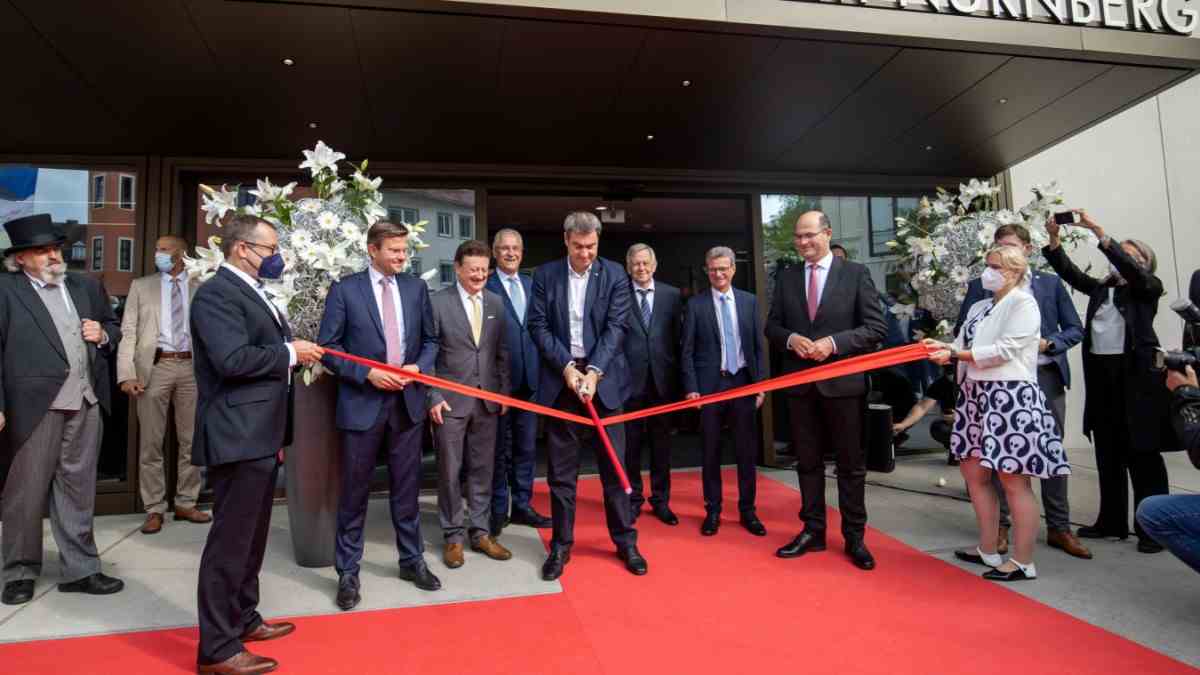The finance ministers of the federal states met in Nuremberg these days and, according to host Albert Füracker (CSU), the colleagues were “impressed” by the city – by the Imperial Castle, by Room 600 of the Nuremberg Trials and of course by the Museum of the Future, which opened in autumn Branch of the German Museum. So far, more than 70,000 people have visited the house, which deals with robotics, space travel and such topics. “School classes are arguing about who gets to come first,” says the CSU budget politician Ernst Weidenbusch, cheering, in this “world-class museum.” He says so in a plenary debate late Wednesday night, called by the opposition because of the high cost of the facility. Weidenbusch will then say other things that will cause some uproar in the state parliament – politely described by the chairperson, Vice-President Wolfgang Heubisch (FDP), as “excited”.
But first things first: For years, the opposition has believed that the Free State has allowed itself to be cheated at the museum. The Supreme Court of Auditors (ORH) recently announced the status of its ongoing audit: The 25-year contract with the investor Gerd Schmelzer was “landlord-friendly”, the museum had “not obtained a more favorable distribution of risk”, it would be in the public sector until the end of the contract , estimated conservatively, cost 200 million euros. An “open market investigation process” and a “profitability comparison” with other locations were missed, it said. Buying a property might have been an option instead of this expensive lease.
The whole thing can probably be interpreted like this: Either the negotiations were just clumsy. Or one robbed oneself of any leeway with the early determination of the Augustinerhof location, because Prime Minister Markus Söder (CSU) was still the finance minister and publicly promoted the museum of the future in his hometown and absolutely wanted to realize it. Schmelzer is not Caritas, but understandably gets as much out of it as an entrepreneur. Or, possibility three, one deliberately did not look too closely and acted laxly with public funds.
Three urgent motions in the state parliament now called for transparency and “comprehensive clarification”. Sebastian Körber (FDP) recognizes a “solid real estate scandal”, Volkmar Halbleib (SPD) says that the procedure was “no matter what the cost”. Claudia Köhler (Greens) speaks of a “rotten egg in the budget”, the state government “denies control and revision”, Ferdinand Mang (AfD) speaks of “a waste of tax money”.
And then Ernst Weidenbusch comes to the lectern, he wants to “put things straight”: In the state capital of Munich, nobody complains if something costs 200 million euros, but in Nuremberg they do. In his opinion, this is due to the “Munich culture mafia,” he emphasizes twice. The fact that the ORH has not yet delivered the report to the state parliament is “bottomless”, anyway the auditors work “methodically” and should “be ashamed of what they have done”. It’s not about a “barracks or gymnasium”, but about an “extraordinarily good museum” with special demands on the spatial conditions. And the opposition is “desperately trying to establish a connection to Markus Söder”, which does not exist at all.
Since no representative of the state government speaks in the plenary debate, despite the opportunity, and Weidenbusch is the only CSU politician to appear, his furor must be accepted as a kind of official line. In any case, Volkmar Halbleib recognizes a “flawless conspiracy theory” in this. Sebastian Körber is stunned by the way he is dealing with the Court of Auditors, the supreme authority that is independent of the state government and only subject to the law. Incidentally, both MPs are not from Munich, but from Franconia. debate ended. For this day at least.

